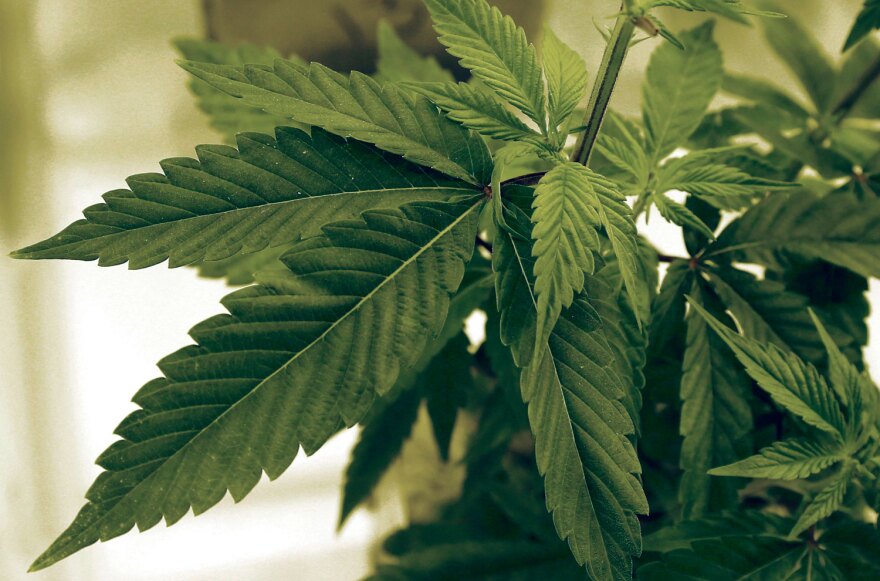The legislative committee implementing Maine’s recreational marijuana law is ramping up efforts to allow for the commercial sale of a drug now legal in eight states. Some hope the retail system will be up and running a year from now, but lawmakers and advocates warn that it could take longer.
The Marijuana Legalization Implementation Committee has held regular meetings since February.
And with discussions like this one, it’s no small wonder why lobbyists are cramming the hearing rooms.
“So for instance for trim, the tax shall be calculated on the basis of retail marijuana product — bud, trim,” says Ted Kelleher, with Maine Professionals for Regulating Marijuana, discussing how Colorado taxes recreational pot.
“So it’s slight hybrid between an ad valorem tax and a pure per volume excise tax,” Kelleher says.
When voters approved Question 1 last year, they effectively began the process of creating a system for the cultivation, sale, testing and taxing of recreational marijuana.
That task is now in the hands of committee members who want to transition away from illegal transactions on the current black market.
Over the past several months, the work on that system has been slow, methodical, and often meandering.
“The challenge is we’re really building an industry regulation system from the ground up. And there’s so many different aspects of this. There’s cultivation, there’s processing of various products, there’s retail sales. There’s taxation, we were talking about this morning. There’s issues of law enforcement and how are we going to license all these various parts of the industry. So, we’ve really got our hands full,” says Republican state Sen. Roger Katz.
He is the committee’s co-chair. He hopes an aggressive meeting schedule over the next month will lead to a bill drafted by early fall.
If that happens, the full Legislature could vote on it if there’s a special session or when lawmakers reconvene in January.
Katz says it’s possible the retail system could be up and running by next summer.
“But that may be a little too ambitious. We want to get it up and running because we want to be encouraging people to go to a legal market for purchase, not the black market. On the other hand, we only get one shot at doing this right the first time, at least. So we want to make sure we get it right,” Katz said.
So far competing interests and uncertainty have bogged down the committee’s work.
The dynamic was on display Wednesday when the committee met to discuss whether the 10 percent sales tax on pot approved by voters is too low.
States like Washington, Oregon and Colorado all tax recreational marijuana at a higher rate.
But Paul McCarrier, of Legalize Maine, warned lawmakers that jacking up the pot tax could have negative consequences.
“They have to be careful about not setting a tax so high that it discourages the consumers from not using the illicit market. We already know there’s a vibrant cannabis market here in Maine and we want to make sure that people have the option for people to go to a retail cannabis store and buy regulated cannabis, but also get it at an affordable price so they’re not encouraged to go to the gray market,” McCarrier says.
There are similar concerns about allowing towns to tack on what’s known as a local option tax on retail or cultivation operations.
Many towns are already taking steps to ban retail marijuana sales.
Democratic state Sen. Mark Dion says a local option tax could provide a financial incentive for towns wary of an enforcement burden with no revenue.
And right now, Dion says local bans could threaten the viability of the legal market.
“We’re acting as if the market is going to spring up and it’s a matter of taxing it. I’m not quite sure the market is ready to spring up based on the climate in the municipalities. They have no stake in this transaction at all,” Dion says.
The committee is wrestling with a host of other issues. What should the seed-to-sale tracking system look like? Should some pot revenues be dedicated to drug prevention and education programs? How will the state test and label retail products?
How lawmakers answer those questions could determine whether the legal marijuana market will be as robust as the illicit one.




